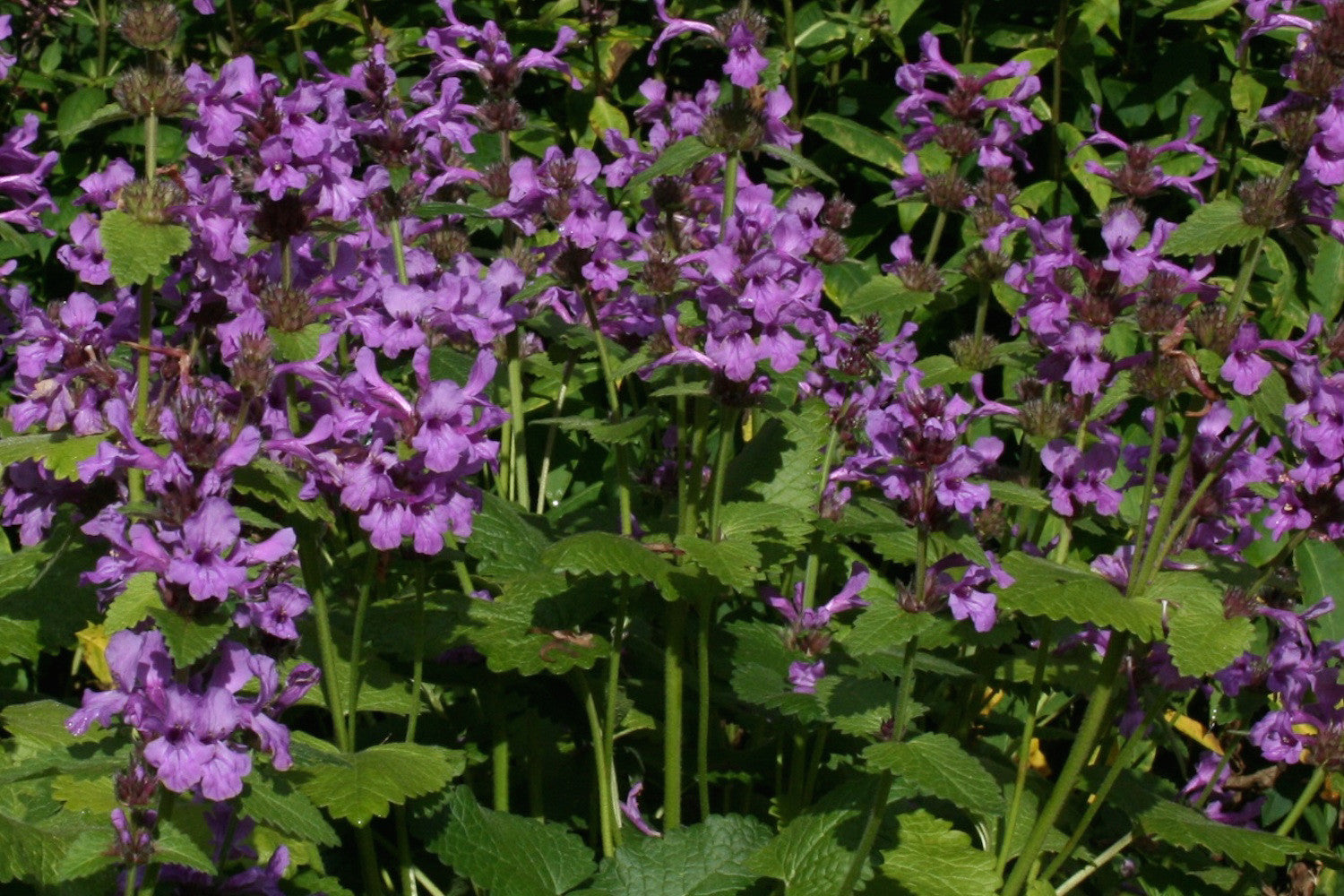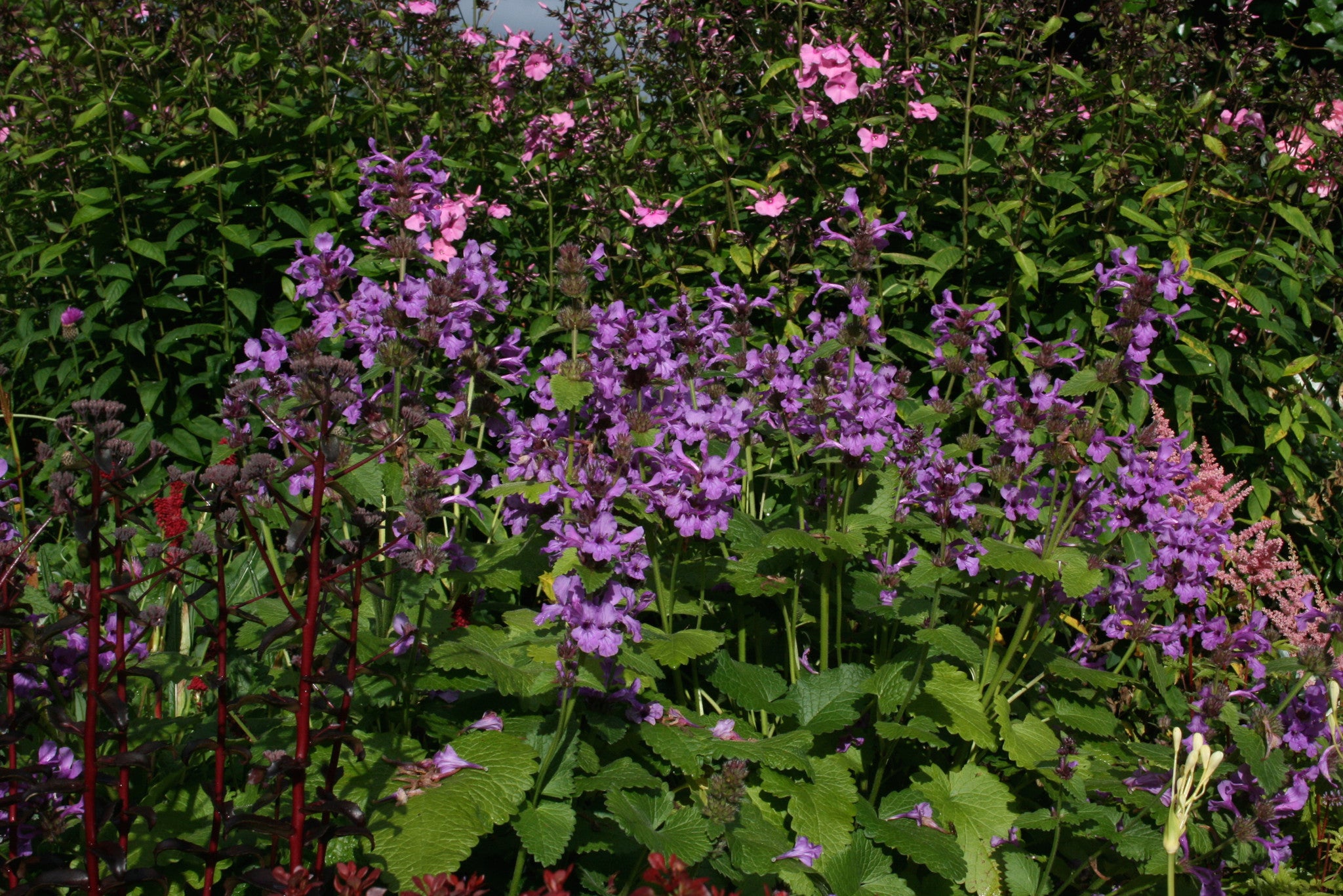Stachys macrantha 'Rosea'
Approx. 0.5 litre pot
About this cultivar:
Stachys macrantha 'Rosea' provides a dense clump of dark green wrinkled leaves, thick spikes of small hooded deep pink flowers in summer on a small bush. Lovely!
- Position: Full sun, partial shade
- Soil: Almost any soil, grows well in Ballyrobert
- Flowers: June, July, August
- Other features: Bees and Butterflies, Grows well in Ballyrobert
- Hardiness: Fully hardy, grows well in Ballyrobert
- Habit: Clump forming, bushy
- Foliage: Deciduous
- Height: 30 - 60 cm (1 - 2 ft)
- Spread: 30 - 45 cm (1 - 1.5 ft)
- Time to full growth: 2 to 5 years
- Plant type: Herbaceous Perennial
- Colour: Green, purple
- Goes well with: -
About this genus:
Stachys is one of the largest genera and a member of the mint family (Lamiaceae). Estimates of the number of species in the genus vary from about 300, to about 450. The distribution of the genus covers Europe, Asia, Africa, Australasia and North America. Common names include heal-all, self-heal, woundwort, betony, lamb's ears, and hedgenettle.
Stachys was named by Linnaeus in Species Plantarum in 1753. The name is derived from the Greek word (stachys), meaning "an ear of grain",and refers to the fact that the inflorescence is often a spike. The common name woundwort derives from the past use of certain species in herbal medicine for the treatment of wounds. Wood betony, Stachys officinalis, was the most important medicinal herb to the Anglo-Saxons of early medieval times.
In most species, the leaves are softly hairy. The flowers are clustered in the axils of the leaves on the upper part of the stem, varying from white to pink, purple, red or pale yellow.They can be found growing in wastelands, grasslands and woodland edges. It thrives in any damp soil in full sun or in light shade.
Stachys is like one of those families where every member is exceptional for something different—one bold, another soft, the next strong or perfectly smart—and they all get along with just about everybody. Diverse, sturdy, dependable, calling them mere ground covers is an understatement. Indispensable is more accurate.




